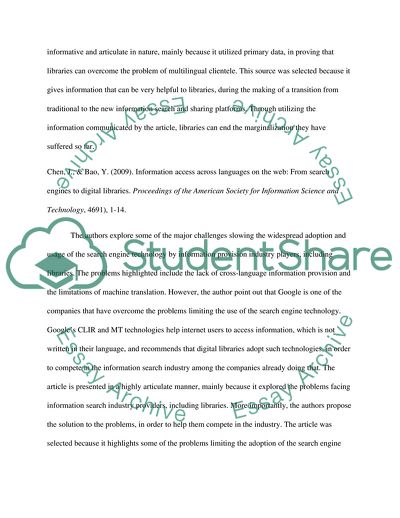Cite this document
(Advances in Search Engine Technology and Its Impacts on Libraries Annotated Bibliography Example | Topics and Well Written Essays - 2000 words - 7, n.d.)
Advances in Search Engine Technology and Its Impacts on Libraries Annotated Bibliography Example | Topics and Well Written Essays - 2000 words - 7. https://studentshare.org/information-technology/1834269-annotated-bibliography
Advances in Search Engine Technology and Its Impacts on Libraries Annotated Bibliography Example | Topics and Well Written Essays - 2000 words - 7. https://studentshare.org/information-technology/1834269-annotated-bibliography
(Advances in Search Engine Technology and Its Impacts on Libraries Annotated Bibliography Example | Topics and Well Written Essays - 2000 Words - 7)
Advances in Search Engine Technology and Its Impacts on Libraries Annotated Bibliography Example | Topics and Well Written Essays - 2000 Words - 7. https://studentshare.org/information-technology/1834269-annotated-bibliography.
Advances in Search Engine Technology and Its Impacts on Libraries Annotated Bibliography Example | Topics and Well Written Essays - 2000 Words - 7. https://studentshare.org/information-technology/1834269-annotated-bibliography.
“Advances in Search Engine Technology and Its Impacts on Libraries Annotated Bibliography Example | Topics and Well Written Essays - 2000 Words - 7”. https://studentshare.org/information-technology/1834269-annotated-bibliography.


